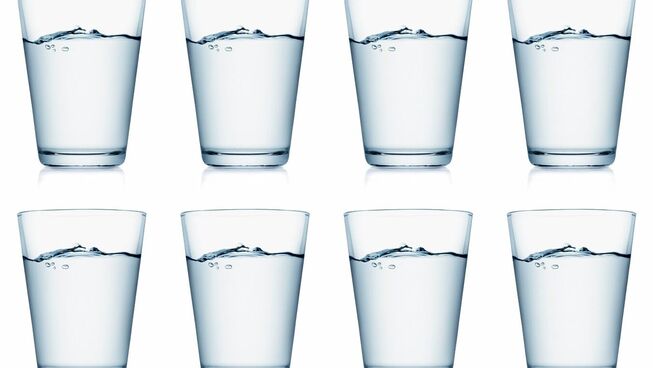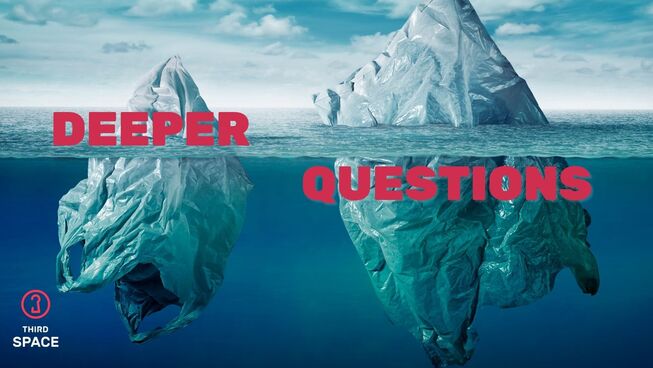Why you’ll be thankful you read this blog post

Research shows that saying thank you more often is actually good for our heath. According to psychologist Martin Seligman:
If every day you write down 3 things you’re thankful for...After 21 days you will rewire your brain to scan for the positives – in fact you’re 7 times more likely to notice the positives...After 42 days, levels of depression and anxiety will decrease and levels of wellbeing increase[1].
In thinking about thankfulness, I’ve observed two things.
Firstly, we’re thankful when we receive a gift. For example, am I thankful when my workplace pays me? I’m definitely glad when I get paid but I wouldn’t say I’m thankful. Getting paid, to me, is getting something I’ve earned, something I deserve for the hours I’ve put in.
Secondly, we’re thankful when there’s someone to thank. It might seem really obvious but “thanks” is an abbreviation for “thank YOU”. So those lovely moments I have in life where things just work together in my favour – I can be glad for those. When I can see that there’s someone responsible for my good fortune – that’s when I’m thankful.
Why make these observations? Because we’ll be more thankful – which is good for us – if we can see more gifts in our lives and see someone to thank for them.
This isn’t easy in the struggles of life – seeing the good things.
I feel a bit this way about Christmas. Growing up it was a chaotic time of jumping in and out of the pool with my cousins and eating pavlova (my only food memory!). As our family grew up and moved away, it’s now just my parents and I eye-balling each other over the dining room table. It’s hard not to compare what I have with what others have, which is my way of inferring that I think I deserve a little bit more. I was telling a friend about this and she remarked that I expected a lot out of life (which is true!). For herself, she saw so much suffering in the world and didn’t think she deserved anything better than anyone else. What was really interesting is that she said she didn’t see the good things in her life necessarily because she just wasn’t looking for them. So whether we think we deserve a lot – or a little – it can be hard to see the good things.
That conversation got me thinking because as a person who identifies as a Christian, technically I have an ultimate gift-giver in my world: God. So if I don’t see good things in my life – what am I saying about God? That he doesn’t care? That he’s stingy with his gifts?
And then I remember this great Bible story that shows that God is exactly the opposite of that. The story is set at a wedding in Cana, Israel. Jesus was among the guests. (Why we care about this detail is because Jesus claims to be God, so what Jesus goes on to do at this wedding will be telling). The wedding is under way and they run out of wine, which would have been shameful. Jesus then turns water into wine – 800 bottles worth! It’s over-the-top generosity in terms of quantity – but also quality as well. The wedding MC remarks that the wedding party had saved the best wine until last – not the usual practice as guests became intoxicated.
The story finishes with these words:
“What Jesus did here in Cana of Galilee was the first of the miracles through which he revealed his glory; and his disciples believed in him.” (John 2:11).
“Glory” is the idea of character or nature. So when Jesus turned the water into wine, his close followers saw his character or nature as marked by over-the-top generosity. God – like Jesus – is generous in the ordinary events of life and not just the big ticket “spiritual items”.
So that means there will be gifts in my life. God does care, and he’s not stingy. I just need the eyes to see it. And so if I re-visit the Christmas scenario, there are good gifts. My parents are wonderful people who enthusiastically (and bravely!) eat whatever I cook for them. They have also been really welcoming of other “strays” I’ve invited to join us at the dining table. When I stop thinking about what I deserve, I can see the gifts more clearly. I can be thankful to God for them, and that’s good for my well-being.
So if you’re thinking that embracing a little more thankfulness in your life would be a good thing – go for it! Remember the numbers – three things to be thankful for per day, after three weeks your outlook will be more positive, and after six weeks your wellbeing will improve.
And if you’re thinking it would be nice to have someone to thank – and like the idea of thanking God whoever or whatever “God” is in your understanding – then
I say that being thankful is a much deeper and more satisfying experience when you know the person you’re thanking and they know you.
If you want to get to know God as the “someone” to thank, then the place to start is with the person of Jesus.
[1] Seligman et al 2005







